Cultural Heritage Terminology Network
Working to decolonise the language of the heritage sector
EDI Resources
For the sake of collating all useful information in one place, this page provides a comprehensive list of resources related to EDI issues in the heritage sector, including but not limited to inclusive description work. CHTNUK does not necessarily endorse the approaches and strategies that appear within the guidance documents, publications, and projects that are listed below. There is always room for improvement and heritage professionals are encouraged to use their best judgement to evaluate the appropriateness of any guides, projects, and models. To suggest additional resources to add to this list or report broken links, please email culturalheritageterminology@gmail.com.
Featured Books
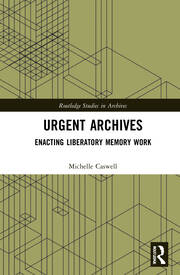
Caswell, Michelle. Urgent Archives: Enacting Liberatory Memory Work. Routledge, 2021.

Sheffield, Rebecca Taves. Documenting Rebellions: A Study of Four Lesbian and Gay Archives in Queer Times. Litwin Books & Library Juice Press, 2020.

Turner, Hannah. Cataloguing Culture: Legacies of colonialism in Museum Documentation. University of British Columbia Press, 2020.
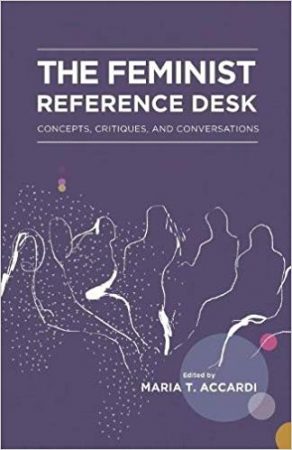
Accardi, Maria T., editor. The Feminist Reference Desk: Concepts, Critiques, and Conversations. Litwin Books & Library Juice Press, 2017.
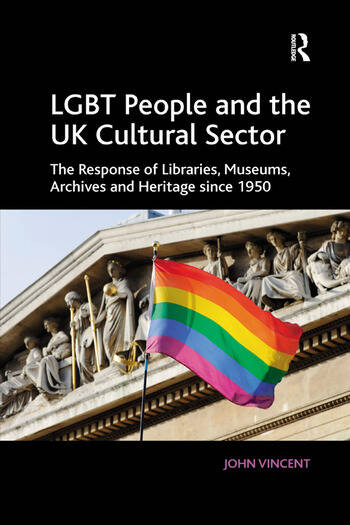
Vincent, John. LGBT People and the UK Cultural Sector. Routledge, 2017.

Tythacott, Louise and Panggah Ardiyansyah, editors. returning Southeast Asia’s past: Objects, Museums, and Restitution. National University of Singapore Press, 2021.
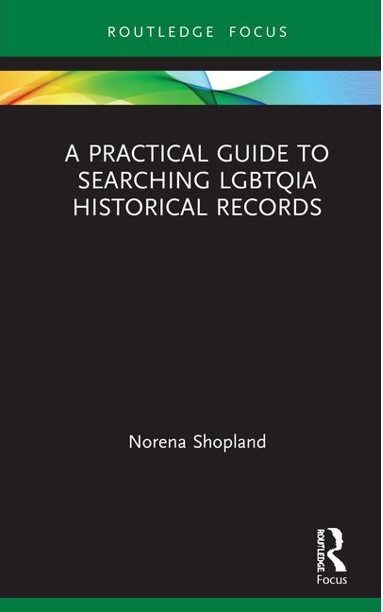
Shopland, Norena. A Practical Guide to Searching LGBTQIA Historical Records. Routledge, 2020.
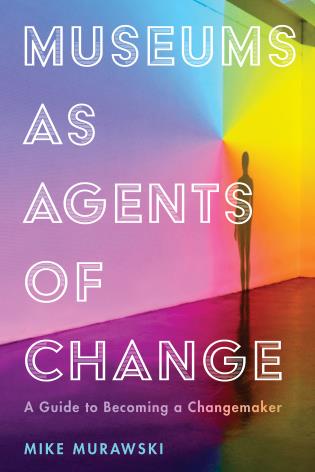
Murawski, Mike. Museums as Agents of Change: A Guide to Becoming a Changemaker. Rowman & Littlefield Publishers, 2021.

Colwell, Chip. Plundered Skulls and Stolen Spirits: Inside the Fight to Reclaim Native America’s Culture. University of Chicago Press, 2019.
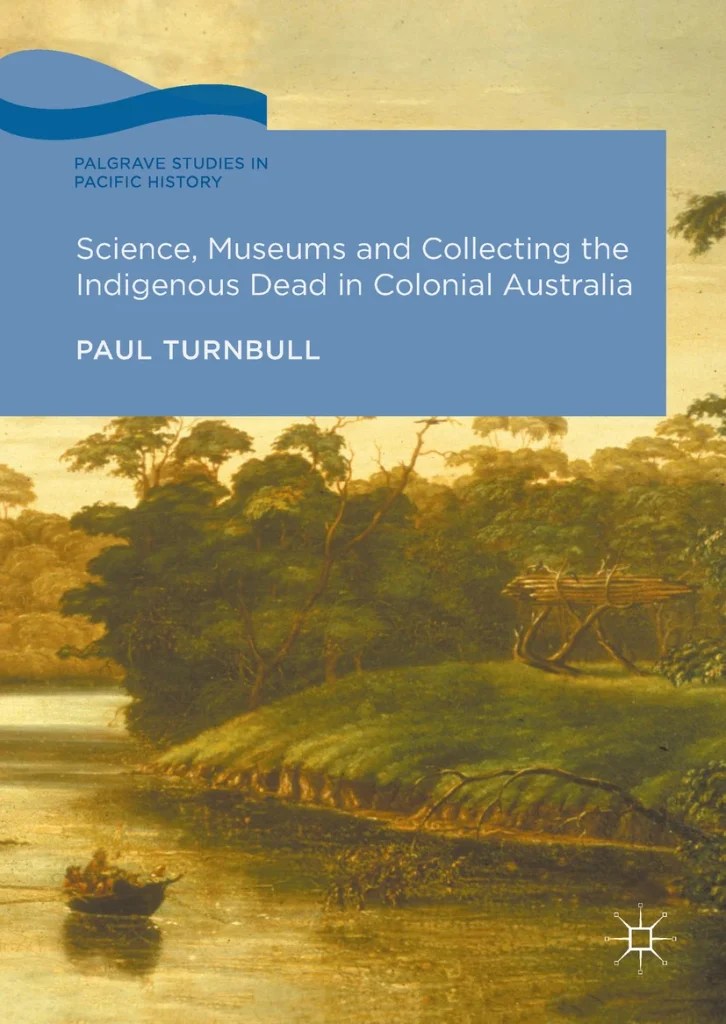
Turnbull, Paul. Science, Museums and Collecting the Indigenous Dead in Colonial Australia. Palgrave Macmillan, 2017.
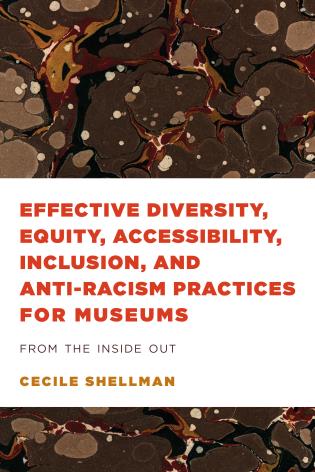
Shellman, Cecile. Effective Diversity, Equity, Accessibility, Inclusion, and Anti-Racism Practices for Museums: From the Inside Out (American Alliance of Museums), Rowman & Littlefield Publishers, 2022.

Raicovich, Laura. Culture Strike: Art and Museums in an Age of Protest. Verso, 2021.

Adair, Joshua G. and Amy K. Levin, editors. Museums, Sexuality, and Activism. Taylor & Francis, 2020.
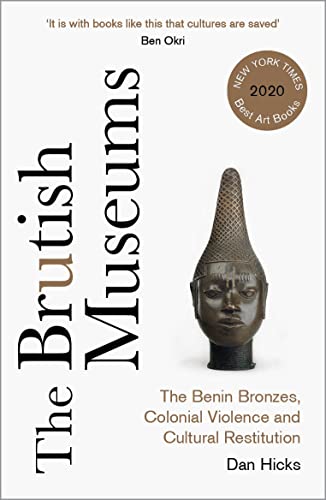
Hicks, Dan. The Brutish Museums: The Benin Bronzes, Colonial Violence and Cultural Restitution. Pluto Press, 2020.
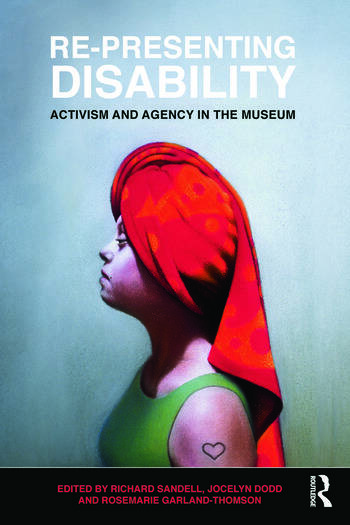
Sandell, Richard, Jocelynn Dodd, and Rosemarie Garland-Thomson, editors. Re-presenting Disability: activism and agency in the museum. Routledge, 2010.
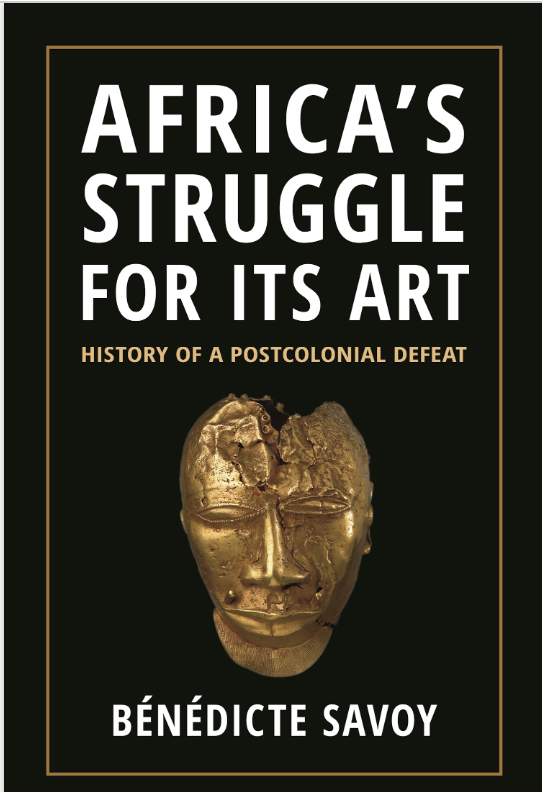
Savoy, Bénédicte. Africa’s Struggle for its Art: History of a Postcolonial Defeat. Translated by Susanne Meyer-Abich. Princeton University Press, 2022.
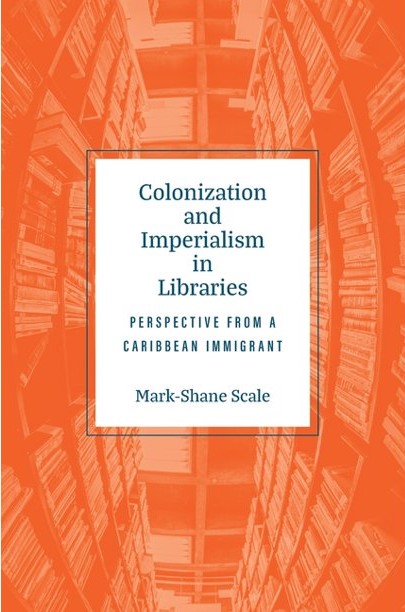
Scale, Mark-Shane. Colonization and Imperialism in Libraries: Perspective from a Caribbean Immigrant. FriesenPress, 2021.
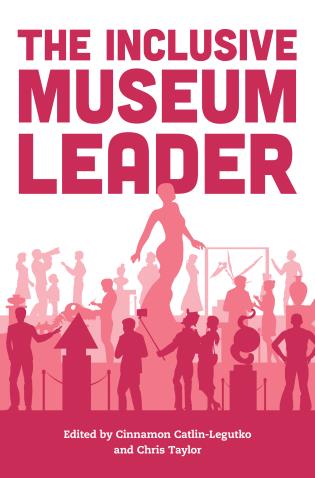
Catlin-Legutko, Cinnamon and Chris Taylor, editors. The Inclusive Museum Leader. Rowman & Littlefield Publishers, 2021.
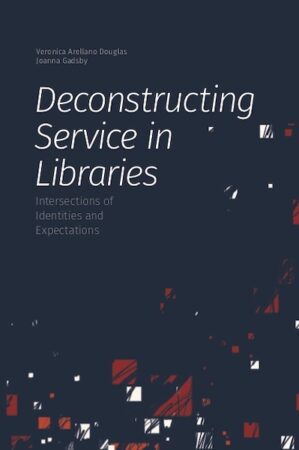
Douglas, Veronica Arellano and Joanna Gadsby, editors. Deconstructing Service in Libraries: Intersections of Identities and Expectations. Litwin Books & Library Juice Press, 2020.
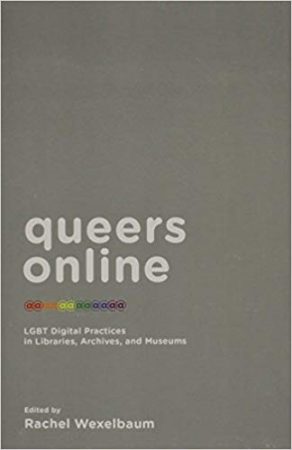
Wexelbaum, Rachel. queers online. Litwin Books & Library Juice Press, 2015.
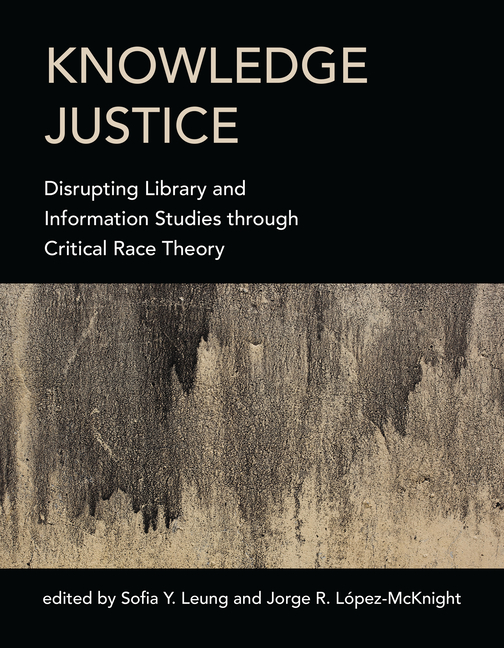
Leung, Sofia Y. and Jorge R. López-McKnight, editors. Knowledge Justice: Disrupting Library and Information Studies through Critical Race Theory. The MIT Press, 2021.

Procter, Alice. The Whole Picture: The colonial story of the art in our museums & why we need to talk about it. Octopus Publishing Group, 2020.

Sullivan, Nikki and Craig Middleton. Queering the Museum. Routledge, 2020.
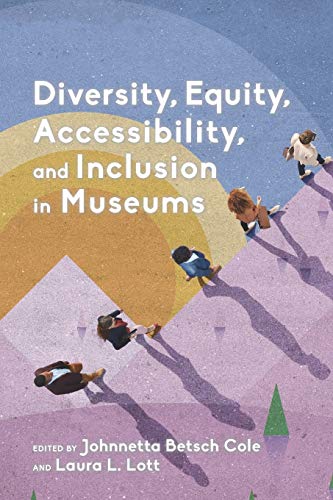
Colem Johnetta Betsch and Laura L. Lott, editors. Diversity, Equity, Accessibility, and Inclusion in Museums (American Alliance of Museums), 2019.
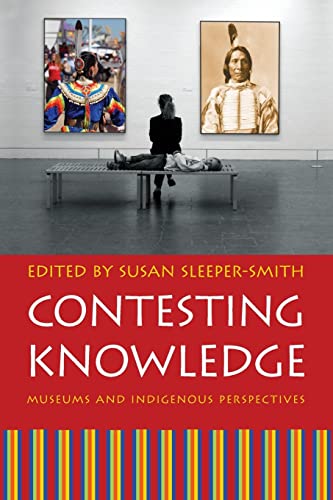
Sleeper-Smith, Susan, editor. Contesting Knowledge: Museums and Indigenous Perspectives. Nebraska Press, 2007.
Descriptive Practice
Inclusive Terminology Glossary
Carissa Chew’s collaborative Inclusive Terminology Glossary aims to collate all existing terminology guidance in one place, providing UK heritage professionals with specific guidance on the historic and contemporary usage of terms relocating to race, ethnicity, gender, sexuality, religion, and disability.
Cataloguing the ‘Oriental’ in MoDA’s Silver Studio Collection
Report by Kirsty Kerr, student at the University of Leicester, exploring use of the word ‘oriental’ as a descriptive term in Museum of Domestic Design & Architecture (MoDA). Also see this blog post.
Journal Article: Inclusive Description on the Glasgow School of Art Library’s published catalog
This case study provides an overview of two guidance packs that Carissa Chew created for the GSA Library, the first of which concerns advisory notices and the second of which concerns subject indexing and classifications. In an effort to share good praxis, this article includes real examples of item-level advisory notice text as well as a set of flowcharts that were designed to help GSA Library staff with the tasks of inclusive description.
Journal Article: Decolonising Description
Case study written by Carissa Chew regarding her EDI Internship with the National Library of Scotland, 2020-2021. Chew, Carissa. “Decolonising description: addressing discriminatory language in Scottish heritage and beyond.” Journal of Irish and Scottish Studies 11.1 (2023), 1-18.
Controlled, In Control, and Out of Control: The Effects of Different Forms of Vocabulary Control on the Subject Indexing and Subject Tagging Processes
PhD Dissertation by Chris Holstrom, University of Washington (2023).
Podcast: Anti-racist description work at Toronto Metropolitan University Libraries
From Melissa J. Nelson’s podcast Archives & Things. In this episode, she speaks to Olivia Wong about her anti-racist description work at TMU libraries.
Advisory Notices and Subject Indexing Flowcharts
Visual workflows for inclusive description tasks created by Carissa Chew to aid the Glasgow School of Art Library’s inclusive cataloguing review, which began in the summer of 2022.
Changing the Representation of Disabilities in Description & Classification
Presentation slides by Violet Fox, Mackenzie Johnson, Trina Soderquist, and Carlie Forsythe at ALA Annual conference.
British Library/Qatar Foundation Partnership
2022 Archivoz article by David Woodbridge, Curstaidh Reid, and Mariam Aboelezz titled “Conscientious Bilingual Description: Treating problematic language in colonial records on the Qatar Digital Library”. This useful case study discusses issues of dealing with harmful language in India Office Records (IOR) collections.
Journal Article: Viewpoint: Ethical cataloguing in action
Overview of inclusive description talks delivered for the ARLIS UK & Ireland Cataloguing & Classification Committee 2021-2022, namely:
- Parkinson, Victoria, “An Introduction to Cataloguing”, 29 January 2021.
- Staniforth, Amy, French, Simon and Roderick, Lloyd, “Catalogue that!”, 16 April 2021.
- Lee, Deborah, “Cataloguing and classification ethics: an ARLIS online talk”, 10 December 2021.
- Daniels, Jane and Pennington, Diane, “ARLIS Cat & Class ethics series: Cataloguing code of Ethics 2021”, 29 May 2022.
- Brandon, Nicole, “ARLIS Cat & Class ethics series: Decolonization, Distance and Ethics: Cataloguing & Classification of North American Indigenous Knowledge in UK Libraries”, 6 May 2022.
- Slatcher, Rebecca, “ARLIS Cat & Class ethics series: North American Indigenous languages at the British Library”, 20 May 2022.
- Danskin, Alan, “ARLIS Cat & Class ethics series: British Library Race Equality Action Plan”, 13 May 2022.
- Chew, Carissa, “ARLIS Cat & Class ethics series: Inclusive Terminology Glossary”, 27 May 2022.
- Rutherford, Ananda, ARLIS Cat & Class ethics series: Provisional semantics, projects and positionality, 10 June 2022.
- Reid, Curstaidh and Woodbridge, David, “ARLIS Cat & Class ethics series: BL Qatar Foundation Partnership, 31 May 2022.
- Derillo, Eyob, “ARLIS Cat & Class ethics series: Ethiopian cataloguing systems and colonial impact, 17 June 2022.
Journal Article: Treshani Perera (2022)
Article by Treshani Perera titled “Description Specialists and Inclusive Description Work and/or Initiatives—An Exploratory Study”.
Critical Cataloging: What? Why? How?
Webinar recording of a presentation by Alyssa Nance, Tiffany Henry, and Anna Craft at the 2022 Southeast Collaborative Online Conference.
The Power of Words to Increase Equity and Access: The Ingalls Library DEI Initiatives
2023 blog post by Chloe Misorski, describing changes of language describing Asian, Indigenous, Latine, and undocumented people at the Cleveland Museum of Art.
Problematic Metadata: Origins and Solutions
2023 blog post by Jamie Carlstone, sharing work done at Northwestern University Libraries.
Queering the Library: Naming the Subject Is an Act of Power
2023 blog post by Margaret Breidenbaugh at the American Studies Journal blog, discussing critical cataloguing past and present and highlighting the formation and work of the Gender and Sexuality SACO Funnel.
From the Catalog Cards to the Cloud: Transforming the Near East Collections for Discovery and Access
By Joan Weeks, Muhannad Salhi, Hirad Dinavari, Khatchig Mouradian, and Huda Dayton in MELA Notes, the Journal of Middle Eastern Librarianship (number 95, 2022).
DCDC22 Great Expectations
RLUK report on the DCDC22 roundtable discussion with speakers Rachel Minott, Mel Bach, and Carissa Chew that aimed to highlight examples of EDI good practice in archives, libraries and beyond.
Whose Knowledge
Global campaign to centre the knowledge of marginalised communities (the majority of the world) on the internet.
Content Warnings for Online Collections (2022)
Survey of offensive language strategies across 25 heritage institutions by Kathleen Lawther, inspired by Alicia Chilcott’s 2019 journal article.
Rethinking Cataloguing (2022)
Collections Trust project seeking feedback on cataloguing standards and definitions in Spectrum.
Book: Michelle Caswell (2021)
Caswell, Michelle. Urgent Archives: Enacting Liberatory Memory Work. Routledge, 2021.
Journal Article: Jessica Tai (2020)
Tai, Jessica. “Cultural Humility as a Framework for Anti-Oppressive Archival Description”, Journal of Critical Library and Information Studies 3.2 (2020).
Language Matters
2020 blog post on redressing bias in digital collection descriptions by Presbyterian Historical Society USA.
Harvard Center for the History of Medicine Manual
Guidelines for the inclusive and conscientious description of collections related to the history of medicine, released by Harvard University Center for the History of Medicine in 2020.
Anti-Racist Description Resources
Released in October 2019, the Archives for Black Lives in Philadelphia’s (A4BLiP) Anti-Racist Description Resources publication provides detailed metadata recommendations for materials relating to African American communities. The guide is intended for archivists and museum professionals in the USA.
The Black Model
“The Black Model: From Géricault to Matisse” exhibition that was launched in 2019 at The Louvre in Paris aimed to recentre the humanity of Black subjects in art by providing alternative titles for all of the paintings on display.
critlib
USA-based movement driven by library workers that is dedicated to bringing social justice principles into libraries.
Terminology Crosswalk
The Presbyterian Historical Society USA’s glossary of discriminatory/preferred terminology, mostly relating to Indigenous groups in North America and Siberia.
Decolonising the Archive: Colonial Language in Our Archival Catalogue
Case study on inclusive description work at the London School of Hygiene and Tropical Medicine. By Jennifer Scott.
Journal Article: Alicia Chilcott (2019)
Chilcott, Alicia. “Towards protocols for describing racially offensive language in UK public archives.” Archival Science 19 (2019), 359-376.
Princeton University Inclusive Description Working Group
Princeton University working group formed in 2019 that is dedicated to tackling the complex issue of cultural sensitivity in archival description. The group has produced some internal processing guidelines and considerations.
Cooper Hewitt Guidelines for Museum Image Description
Accessibility guidelines for museum image descriptions by Cooper Hewitt, Smithsonian Design Museum.
Ways of Knowing Oral History project
Recordings available as part of the Ways of Knowing Oral History project, funded in part by the Metropolitan New York Library Council’s 2022 Equity In Action Grant, featuring interviews with metadata creators Sarah Pritchard, Mary Ellen Capek, Richard Chabrán, Lillian Castillo-Speed, Adrian Williams, and K.J. Rawson.
SAA Inclusive Description Resources
List of inclusive description resources provided by the Society for American Archivists.
Journal Article: Meghan Rinn, (2018)
Rinn, Meghan. “Nineteenth-century depictions of disabilities and modern metadata: a consideration of material in the P.T. Barnum Digital Collection.” Journal of Contemporary Archival Studies 5 (2018).
SAA Session Recaps: Kelly Bolding, et al. & SAA Annual Conference Presentation Slides (2018)
“Toward Culturally Competent Archival (Re)Description of Marginalised Histories” is a blog post by the Society of American Archivists that recaps a 2018 presentation by Kelly Bolding et al. . Presentation slides are included from “Toward Culturally Competent Archival (Re)Description of Marginalized Histories”, a panel presentation at 2018 SAA Annual Conference by Dorothy Berry, Kelly Bolding, Annie Tang, and Rachel E. Winston.
“Cooperatively Conscientious Cataloging”: CaMMS Forum (2018)
Forum titled “Cooperatively Conscientious Cataloging” held at ALA Midwinter 2018. Write-up by Carol Robenstine Miller, ALCTS News.
Journal Article: Hope A. Olson (2001)
Olson, Hope A. “The Power to Name: Representation in Library Catalogs.” Signs: Journal of Women in Culture and Society 26.3 (2001), 639–668.
Journal Article: Jessica Tai (2018)
Jessica Tai, “Retelling as Resistance: Towards the Implementation of Community-Centered Frameworks in the Redescription of Photographic Archives Documenting Marginalized Communities”, Views, Newsletter of the SAA Visual Materials Section, Spring/Summer 2018.
Advanced HE
Guidance for Higher Education institutions approaching terminology around race and ethnicity.
OCLC Hanging Together (2018)
2018 report based on the OCLC’s survey findings into whether institutions had made metadata changes to redress offensive language.
Native American Protocols For Archival Materials (2007)
Updated in 2007, these Protocols by First Archivist Circle set out the guiding principles for respectful cataloguing practices of Native American materials in the USA. The Protocols were created in consultation with Indigenous communities in the United States.
Cultivating a Culture for Inclusive Metadata
Presentation slides by by Shay Beezley and Anna Nicole Sump-Crethar.
Chicago History Museum Blog
Blog post on “The Ethics of Language in Cataloging” by Chicago History Museum, written by Elizabeth McKinley and Gretchen Neidhart.
Personal Names Around the World
Important guidance on how to account for different naming practices around the world, such as within English-language web forms, databases, and ontologies. By Richard Ishida, W3C.
Resources by Sharon Mizota
Sharon Mizota is a USA-based DEI Metadata Consultant, who helps arts and culture organisations transform and share their metadata to contribute to a more just, equitable, and representative society.
Land Acknowledgement and Indigenous Metadata Resources
Compiled by the Program for Cooperative Cataloging Diversity Equity and Inclusion Advisory Committee (PCC ACDEI).
Rom Glossary
Glossary of terms related to Gypsy, Roma, and Traveller groups.
Critcatenate
Run by the US-based Cataloging Lab and written by Violet Fox, Critcatenate is a monthly list of critical cataloging (critcat) efforts and upcoming events.
Ethical Cataloguing in UCD Digital Library
Ethical cataloguing guidelines compiled by Órna Roche, including links to examples of content warnings and access restrictions.
Finding the Words
Guidance written in 2022 by Lisa Kennedy in collaboration with the Bath and Colonialism Archive Project.
Presentation: Reparative Description: Confronting Anti-Blackness in Archives
By Melissa J. Nelson and hosted by the Amherstburg Freedom Museum.
Journal Article: Decolonizing the Authority File: Creating Contexualized Access to the University of Calgary’s Indigenous Authors Collection
Dahl, Susan and Kaia MacLeod. “Decolonizing the Authority File: Creating Contexualized Access to the University of Calgary’s Indigenous Authors Collection.” International Journal of Information, Diversity, & Inclusion (2023).
2023 LD4 Conference
Recordings available from this 2023 conference. Sessions included:
- Ethics in Linked Data Book Panel, presented by Bri Watson, Alexandra Provo, and Kathleen Burlingame, the editors of the new Ethics in Linked Data book to be published in August by Library Juice Press
- Proactive Strategies to Improve Underrepresentation in Public Knowledge Graphs: A Wikidata Sprint in UNLV Special Collections Highlighting LGBTQ+ Las Vegas, presented by Darnelle Melvin
- How do you model my gender? Studying gender representation in the Wikidata knowledge base, presented by the Wikidata Gender Diversity (WiGeDi) project
- Developing Multilingual LGBTQ+ Linked Open Vocabularies, presented by Shuai Wang
OCLC Cataloging Community Meeting June 2023
Recording that features presentations on a number of topics related to inclusive description:
- The U.S. Board on Geographic Names – An Overview of the Processes for Approving Geographic Names for Federal Use, presented by Betsy Kanalley, Geospatial Products and Services Program Manager, USDA Forest Service
- Reparative Geographic Name Changes: Case Studies in Cataloging, presented by Kate James, Program Coordinator, Metadata Engagement, OCLC
- Queering the Catalog: SACO Gender and Sexuality Funnel, presented by Margaret Breidenbaugh, Library Specialist, Cincinnati State Technical and Community College, and Maya Espersen, Cataloging Coordinator, Aurora Public Library (Colorado)
- Rapid Harm Reduction Through Locally Defined Subjects in WorldCat Discovery presented by Grace McGann, Associate Product Manager, Delivery Services, OCLC
Journal Article: Challenging legacies at the British Library
Danskin, Allan. “Challenging legacies at the British Library.” Art Libraries Journal 48.2 (2023).
Metadata Justice in Oklahoma Libraries & Archives Symposium
Slides available from this symposium held in July 2023. Also see programme.
Journal Article: Indigenous languages in the British Library catalogue: a critique of ‘Indians of North America—Languages’
Slatcher, Rebecca. “Indigenous languages in the British Library catalogue: a critique of ‘Indians of North America—Languages’” Art Libraries Journal 48.2 (2023).
CALC2023
Transcripts and recordings from the 4th Critical Approaches to Libraries Conference relating to a number of topics related to cataloguing and decolonisation.
Ellie King – Creating a Content Warning for The Keep
Collections Trust blog post about the creation of the content warning and accompanying Inclusive Cataloguing Statement of Intent that now sits on The Keep website as part of East Sussex and Brighton and Hove Record Office (ESBHRO)’s inclusive cataloguing project which began in January 2022.
Journal Article: Critiquing the Machine: The Critical Cataloging Database
By B. M. Watson, published in TCB: Technical Services in Religion & Theology. The article describes the collection of 600 articles at CritCat.org and a breakdown of the main subdomains of critical cataloguing literature:
- Racialised knowledge organisation
- Indigenous knowledge organisation
- Names, Sex & Gender
- Queer knowledge organisation
- Disabled / Crip knowledge organisation
Recording: NETSL 2023 Annual Conference: Passion into Action: Your Initiative in Technical Services
Sponsored by the New England Technical Services Librarians, sessions included:
- Our Metadata, Ourselves: The Trans Metadata Collective presented by Jackson Huang and Bri Watson
- Implementing Diversity, Equity, & Inclusion (DEI) in the Catalog: A Case of Library Connection (LCI) Libraries, presented by Judy Njoroge
- Sex Negativity & Anti-Queerness in Library of Congress Classification: History, Structure, & Systems presented by Rhonda Kauffman, Tiffany Henry, Anastasia Chiu
- “Whose Authority? Applying a DEI Lens to Traditional Descriptive Practice,” presented by Laura Daniels, Jackie Magagnosc, Liz Parker
- Did Libraries ‘Change the Subject’? What Happened, What Didn’t, & What’s Ahead presented by Jill Baron, Violet Fox, Tina Gross
Queer Cataloguing in UK Museums
Blog post by Arran Rees, discussing survey results and the idea of queering cataloguing.
Curationist & Curationist Taxonomy Guidelines
A free online resource that aggregates cultural heritage metadata, mostly from museums, and enhances it with metadata that is inclusive and respectful of the communities it represents.
Metadata Learning & Unlearning Blog
Blog series by Curationist that raises questions and makes proposals for what metadata can do to advance a broader dialogue about diverse worldviews within open education and openGLAM realms.
Mukurtu CMS
Free, mobile, and open source platform built with Indigenous communities to manage and share digital cultural heritage.
Europeana DE-BIAS
Two-year project to develop an AI-powered tool that will automatically detect problematic terms in cultural heritage metadata and provide information about their problematic background.
The Power of Words to Increase Equity and Access: The Ingalls Library DEI Initiatives
Case study of inclusive description work at Ingalls Library by Chloe Misorski for the Cleveland Museum of Art blog, April 2023.
Journal Article: Describing Special Collections: Two Projects to Modernize the RBMS Controlled Vocabularies
Article in Cataloging & Classification Quarterly by Brenna Bychowski, Ryan Hildebrand, Sarah Hoover, and Lauren Reno.
NEMO Cataloguing Principles (2023)
10 principles for digital cataloguing by the Network of European Museum Organisations.
MA Thesis: Aida Fadioui (2022)
Internship report titled “Decolonising digital Cultural Heritage Institutions Harmful content and contentious language: the case of Europeana”.
Queer Metadata Collective
USA-based initiative run by cataloguers, librarians, archivists, scholars, museum and information professionals interested in improving the description and classification of queer people in heritage and other information systems. The Collective’s primary goal is to develop a set of best practices for the description, cataloguing, and classification of queer information resources.
Trans Metadata Collective & TMDC Report (2022)
The Trans Metadata Collective is a group of dozens of cataloguers, librarians, archivists, scholars, and information professionals with a concerted interest in improving the description and classification of trans and gender diverse people across the GLAM sector. The collective updated their report on “Metadata Best Practices for Trans and Gender Diverse Resources” in August 2022.
Inclusive Metadata Strategies at Max Chambers Library
Presentation by Shay Beezley, Anona Earls, and Kaitlyn Palone.
Journal Article: “Writing and Implementing a Statement to Remediate Harmful Language in the Library Catalog”
Published in Library Journal in December 2022. Cataloguer Andrea Schuba describes the process of creating a Statement of Harmful Language in Catalog Records for the University of Maryland Libraries and provides tips, including explaining harmful content and providing a method for soliciting feedback.
Journal Article: Archives of Revolution
2023 article by Emma Hart, Sean Quimby, and Karin Wulf, urging critical thought about how revolutions are archived, including reparative description efforts. Published in Age of Revolutions, an open-access journal.
Bristol Museums “Decolonising Descriptions” (2022)
Collections Trust case study on Bristol Museum and Bristol Archive’s new Language Working Group.
Digital Benin
Project that demonstrates community-centred knowledge production about stolen cultural heritage using multiple forms and presentations of knowledge as well as local language metadata terminology.
Decolonising Through Critical Librarianship
Blog run by University of Cambridge librarians on topics related to decolonisation, including language and cataloguing issues.
Collections Trust
Terminology guidance and published terminology resources kept up to date by Collections Trust.
Winter 2022 issue of the Journal of Critical Digital Librarianship
This issue has multiple critical cataloguing relevant articles, especially Toward Ethical and Inclusive Descriptive Practices by Shira Peltzman and Kelly Besser.
The Centre for Internet and Society India
Project with intersectional awareness dedicated to improving the accessibility of information.
V&A “Tackling Racist Language in Collections” (2021)
Collections Trust case study on dealing with outdated and offensive terminology by Zoë Hollingworth, Collections Systems Lead at the V&A.
Pitt Rivers Museum Labelling Matters
Pitt Rivers Museum in Oxford ran a series of 10 Minute Tippex Tours to highlight labels where offensive language had been “whitewashed” and used them to initiate discussion about the language used on labels and how to find new forms of interpretation.
People-Centred Cataloguing
Toolkit created by Kathleen Lawther, featuring suggestions and case studies for how museums might take a more people-centred approach to their collections documentation work.
Book: Hannah Turner (2020)
Turner, Hannah. Cataloguing Culture: Legacies of colonialism in Museum Documentation. University of British Columbia Press, 2020.
Sunshine State Digital Network
In 2020, Sunshine State Digital Network compiled list of resources related to conscious editing and anti-oppressive metadata practices. Their three-part conference titled “Introduction to Conscious Editing”, which explored conscious editing initiatives taking place in the USA in 2020, is available to watch on Youtube.
Presentation Slides: Violet Fox et al. (2020)
“Addressing Bias in Your Catalog”, presentation slides by Violet Fox, Tammy Moorse, and Tiffany Wilson.
Journal Article: Courtney Dean (2019)
Dean, Courtney. “Redescribing Japanese American Collections at UCLA.” Descriptive Notes, Newsletter of the SAA Description Section, 2019, 6-9.
Words Matter (2018)
Produced in the Netherlands by the National Museum of World Cultures (Tropenmuseum, Afrika Museum, Museum Volkenkunde, Wereldmuseum) in 2018, the Words Matter publication is an “unfinished” guide to word choices in the cultural sector. The terminology guidance that is offered is most useful in relation to the Dutch Empire.
Indexing, Classifications & Alternative Vocabularies
Finding Palestine in the Library
Article by Jamie Carlstone regarding fixed-field codes for Palestinian materials.
Open Letter to APA
2024 open letter calling for the American Psychological Association to the change the subject heading “Blacks” to “Black People”.
Trans & Gender Diverse LCSH
Resource created by Beck Shaefer.
DEI Controlled Vocabs List
Resource compiled by the Association of Moving Image Archivists.
Problem LCSH
A crowdsourced compilation of problematic Library of Congress Subject Headings, created by Cataloging Lab.
AIATSIS
A subject heading thesaurus that was developed in consultation with First Nations communities in Australia.
Journal Article: Unsettling the Library Catalog: A Case Study in Reducing the Presence of “Indians of North America” and Similar Subject Headings
By Karl Pettitt and Erin Elzi, published in Library Resources & Technical Services (2023).
Presentation: “The Power to Change Sears is in Your Hands” & Script/Slides
By Violet Fox, hosted by the Interest Group for Bibliographic Standards as part of the Library and Information Association of South Africa’s South African Library Week 2023, discussing recent changes within the Sears List of Subject Headings.
HAPI Review
Project to review the names of indigenous groups, describing efforts to review and revise Indigenous group names in HAPI (Hispanic American Periodicals Index), which provides article indexing for scholarly journals published around the world on Latin America, the Caribbean, and Latinx communities in the United States.
Journal Article: Shīʿīsm, Sects, and Subject Headings
By Nawazali A. Jiwa in MELA Notes, the Journal of Middle Eastern Librarianship (number 95, 2022).
Report of the SAC Working Group on External Review of LC Vocabularies
Provides ideas for improving the editorial process for LC vocabularies such as LCSH, including creating an external review board and enabling more efficient methods for submitting proposals.
From Dewey to Deer
2023 news article about New Westminster Secondary School in British Columbia adopting the Brian Deer Classification.
Controlled Vocabularies in Practice: Reparative Description
Recording of a webinar hosted in April 2023 by the Society for American Archivists Technical Subcommittee on Encoded Archival Standards and Description Section, featuring Michelle Cronquist talking about the African American SACO funnel, Rachel Aileen Searcy discussing the application of Homosaurus terms, and John DeSantis talking about the “Illegal immigration” headings.
FLASHback: Reimagining the Australian Extension to LCSH
Blog post by Alissa McCulloch, describing her efforts to bring back the long-dormant Australian-centric vocabulary used as an addition to using LCSH.
British Columbia First Nations Subject Headings
British Columbia First Nations Subject Headings, XWI7XWA Library, First Nations House of Learning, University of British Columbia.
Chicano Thesaurus
Created by Ethnic Studies Library, UC Berkeley.
Claire A. Kronk Gender, Sex, and Sexual Orientation Ontology Resource
Gender, Sex, and Sexual Orientation ontology resource produced by Clair A. Kronk.
Macro for the OCLC Connexion client
Written by Wendy Isicson, University of North Carolina at Chapel Hill for adding MARC formatted 650_7 Homosaurus terms to bibliographic records.
SAC Working Group
Report of the SAC Working Group on Alternatives to LCSH “Illegal aliens,” formed to assist libraries in making revisions to their own catalogues using alternatives to this Library of Congress Subject Heading. The report includes results from a survey conducted in September-October 2019 and recommendations from alternate vocabularies.
Journal Article: Tina Gross and Violet B. Fox (2019)
Gross, Tina and Violet B. Fox. “Authority Work as Outreach”. In Ethical Questions in Name Authority Control, edited by Jane Sandberg, Sacramento: Library Juice Press, 2019, 335-348.
Journal Article: Sarah A. Howard and Steven A. Knowlton (2018)
Howard, Sarah A. and Knowlton, Steven A. “Browsing through Bias: The Library of Congress Classification and Subject Headings for African American Studies and LGBTQIA Studies.” Library Trends 67.1 (2018), 74-88.
“Creating a Cataloging Code of Ethics”: CaMMS Forum (2017)
2017 forum titled “Power That Is Moral: Creating a Cataloging Code of Ethics”. Write-up by Billie Cotterman, ALCTS News.
Journal Article: Melissa Adler (2017)
Adler, Melissa. “Classification along the color line: Excavating racism in the stacks.” Journal of Critical Library and Information Studies 1.1 (2017).
Journal Article: Molly Higgins (2016)
Higgins, Molly. “Totally Invisible: Asian American Representation in the Dewey Decimal Classification, 1876–1996.” Knowledge Organization, 43.8 (2016), 609–621.
Journal Article: Sandra Littletree and Cheryl Metoyer (2015)
Littletree, Sandra and Cheryl Metoyer. “Knowledge Organization from an Indigenous Perspective: The Mashantucket Pequot Thesaurus of American Indian Terminology Project.” Cataloging & Classification Quarterly 53.5–6 (2015), 640–657.
Journal Article: Haroon Idrees (2013)
Idrees, Haroon. “Organization of Islamic Knowledge in Libraries: The Role of Classification Systems.” Library Philosophy and Practice 63.3 (2013), 98-117.
Journal Article: Jonathan Furner (2007)
Furner, Jonathan. “Dewey Deracialized: A Critical Race-Theoretic Perspective.” Knowledge Organization 34.3 (2007), 144–68.
Journal Article: Ed McKennon (2006)
McKennon, Ed. “Importing Hegemony: Library Information Systems and US Hegemony in Canada and Latin America.” Radical History Review 95.95 (2006), 45–69.
Brian Deer Classification System
Created in the mid-1970s, the Brian Deer Classification System (BDC) is used to organise materials in libraries with specialised Indigenous collections.
NEH awards Hula Preservation Society $300K for oral history project
An initiative that aims to create an Indigenous-centred controlled vocabulary for Kāneʻohe Hula Preservation Society’s oral history library. The project also aims to produce guidelines for developing subject headings and preferred terms.
Journal Article: Improving Subject Description of an LGBTQ + Collection
By Joshua Hutchinson & Junjiro Nakatomi, describing work done to improve subject access to works in ONE Archives, including adding local subject headings.
Kathryn Becker – Dewey Review
Blog post about changes in Dewey relating to drag, transvestism/cross dressing, and gender dysphoria.
Subject headings for Indigenous peoples
New Library of Congress guidelines on subject headings related to indigenous peoples.
Create locally preferred subjects for display and search expansion
New feature available on OCLC’s WorldCat Discovery to locally re-map subject headings to hide sensitive language.
Journal Article: Library of Congress Subject Headings: A Post-Coordinated Future
Cooey, Nancy. and Amy Phillips “Library of Congress Subject Headings: A Post-Coordinated Future.” Cataloging and Classification Quarterly (2023).
Library Resources & Technical Services 67.1 (2023)
- Using the Homosaurus in a Public Library Consortium: A Case Study by Rachel K. Fischer (also see this presentation).
- Documenting Classification Systems: A Case Study and Considerations by Christopher Straughn.
- Community Forward: Developing an Open and Free Cataloging Standard for Rare Materials by kalan Knudson Davis, Jessica Grzegorski, Elizabeth Hobart, A. Tims.
Best Practices in Authority Work Relating to Indigenous Nations in the U.S. (May 2023 version)
Document by the Latin American and Indigenous Peoples of the Americas (LAIPA) Funnel providing considerations for reflection before and during Indigenous-related metadata work in libraries.
Creating a Community-Centric Controlled Vocabulary
Blog post from the Chicago Collections Consortium, written by Gretchen Neidhardt and Kate Flynn.
If You See Something, Submit Something: A Beginners Guide to Contributing to Controlled Vocabularies
Presentation slides by Sherman Clarke, Sarah Osborne Bender, Alexandra Provo, Andrea Puccio at ARLIS/NA (Art Libraries Society of North America) conference in April 2023. Discusses contributing to LCSH, Getty Vocabularies, and Wikidata.
Reshelving Project – Ahmed Iqbal Ullah Education Trust
June 2023 blog post titled “Changes to our Library: the Gender, Relationships and the Family section”, which discusses the RACE Centre’s review of its bespoke classification system.
Creating subject headings for Indigenous topics: a culturally respectful guide
Guidance on Indigenous-related subject headings by Oregon State University, March 2023.be
Homosaurus
An international LGBTQIA+ linked data vocabulary that began in 1982, produced by IHLIA LGBT Heritage in the Netherlands. Version 3.4 released June 2023.
Episode 91 of the Library Punk podcast
Podcast episode about the Homosaurus vocabulary.
List of Alternative Vocabularies
A list of various alternative vocabularies projects, created by Cataloging Lab.
New updates to the National Library of Medicine’s Medical Subject Headings (MeSH)
Updates released in 2023, including several revised and new headings relating to population groups, such as revising Blacks to Black people. Many of these changes were spurred by the June 2022 Open Letter to NLM Regarding MeSH Term Changes. Also see this Twitter thread (part 1 & part 2) by Tracy Shields.
List of Classification Schemes and Controlled Vocabularies
A library-specific list created by Julie Hardesty that covers some of the most widely-used alternatives to LCSH, LCC, and the DDC.
Controlled Vocabularies Decision Tree
Google Document guidance by Dawn Childress, Gretchen Gueguen, Julie Hardesty, Rebecca Pattillo, Erik Radio, and Lynette Rayle, helping heritage professionals to make decisions around controlled vocabularies. Updated April 2021.
Presentation: Juliet Hardesty (2020)
Recorded presentation titled “Mitigating Bias Through Controlled Vocabularies” from the 2020 DLF Forum.
Documentary: Change the Subject (2019)
2019 documentary film about a group of Dartmouth students who challenged anti-immigrant language in the Library of Congress subject headings.
Journal Article: Karen Li-Lun Hwang (2018)
Hwang, Karen Li-Lun. “Minding and Mending the Gaps: A Case Study in Linked Open Data.” The Design for Diversity Learning Toolkit, Northeastern University Library, 2018.
Critical Cataloging Subject Guide
Resource list on “Critical Cataloging and Classification” by Symphony Bruce, American University.
Journal Article: Melissa Adler and Lindsey M. Harper (2018)
Adler, Melissa and Harper, Lindsey M. “Race and Ethnicity in Classification Systems: Teaching Knowledge Organization from a Social Justice Perspective.” Library Trends 67.1, (2018), 52-73.
Journal Article: Marisa Elena Duarte and Miranda Belarde-Lewis (2015)
Duarte, Marisa Elena and Miranda Belarde-Lewis. “Imagining: Creating Spaces for Indigenous Ontologies.” Cataloging and Classification Quarterly, 53.5-6 (2015), 677–702.
Journal Article: Alissa Cherry and Keshav Mukunda (2015)
Cherry, Alissa and Keshav Mukunda. “A Case Study in Indigenous Classification: Revisiting and Reviving the Brian Deer Scheme”.
Journal Article: Rebecca Green (2015)
Green, Rebecca. “Indigenous Peoples in the US, Sovereign Nations, and the DDC.” Knowledge Organization 42.4 (2015), 211–221.
Journal Article: Steve Knowlton (2005)
Knowlton, Steven A. “Three Decades since Prejudices and Antipathies: A Study of Changes in the Library of Congress Subject Headings.” Cataloging & Classification Quarterly 40.2 (2005), 123–145.
Journal Article: Hope A. Olson (1998)
Olson, Hope A. “Mapping beyond Dewey’s Boundaries: Constructing Classificatory Space for Marginalized Knowledge Domains.” Library Trends 47. 2 (1998), 233–254.
Language Guidance
Translate Hate
A glossary created by the American Jewish Community (AJC) to help individuals identify, expose, and report antisemitism.
Conscious Style Guide
A compilation of the latest resources on conscious language, designed for journalists.
Riot or Massacre: How One Word Changes Perspective
Blog post by Serena McCracken from the Atlanta History Center, describing redescription efforts by Kenan Research Center staff & African American SACO Funnel members.
Writing About “Slavery”?
Collaborative guide on terminology relating to the Atlantic Slave Trade, co-ordinated by P. Gabrielle Foreman.
Densho & Power of Words
Guidance on using terminology to describe Japanese American incarceration in the USA during the Second World War.
Women’s Thesaurus
Project by Atria, Institute on gender equality and women’s history.
On the other hand…
Blog post by Kathryn Becker on the Dewey Blog about the capitalization of “Black” and “white” in WebDewey.
Inclusive Language in Technology
Guidelines produced by Barathy Rangarajan, Academy Software Foundation.
Indigenous Corporate Training Inc
2016 blog post on “Indigenous Peoples terminology guidelines for usage”.
University of Leeds
Day-to-day inclusive language guidance by the University of Leeds.
Writing About Disability
UK Government guidance on words to use and avoid when writing about disability.
Ligali Truth (2007)
Preferred terminology guidance published by a Pan African human rights charity working to challenge Afriphobia in the British media (link may be expired).
Historic England Disability Glossary
A glossary of historic terms used to refer to disability in England.
Moscas de Colores
Internationally crowdsourced dictionary of gay and lesbian terms across 68 different languages.
Journal Article: Indigenous, Native American, or American Indian? The Limitations of Broad Terms
2023 article by Brooke Bauer and Elizabeth Ellis.
Journal Article: Handicapped has been cancelled: The terminology and logics of disability in cultural heritage institutions
2023 article by Brian M. Watson and Beck Schaefer, published in First Monday. The articles addresses the issues around the LCSH heading “Social disabilities,” articulating classification systems often erase disability and replace them with eugenic narratives about overcoming adversity or policing deviance.
Book: Norena Shopland, 2020
Shopland, Norena. A Practical Guide to Searching LGBTQIA Historical Records. Routledge, 2020.
Inclusive Language Guide
Guidance by London Metropolitan University.
The Decolonial Dictionary
Project by Shelley Angelie Saggar that demystifies terms related to postcolonialism and decolonisation.
Racial Slurs and Racially Charged Language
Guidance on racial slurs and racially offensive terminology produced by the University of Cambridge’s Faculty of English.
GLAAD
Media Reference Guide (11th edition) on LGBTQIA+ terminology by Gay & Lesbian Alliance Against Defamation (GLAAD).
Critical Alphabet
A set of critical terms and questions designed to challenge discrimination within design fields.
Disability Language Style Guide
USA-preferred guidance on disability language produced by the National Center on Disability and Journalism.
Glossary of Disability Terms
Glossary of Disability Terms, North Carolina Council on Developmental Disabilities.
How to Make Your Writing More Sensitive
Guidance by Melissa Haun.
Advisory Notices & Policy
Institutional statements
- AIATSIS
- Aberdeen Archives, Gallery & Museum
- Australian War Memorial
- Backstage Library Works Inclusive Terms FAQ
- BBC Rewind
- Black Cultural Archives
- Borthwick Institute, University of York
- Brown University Library
- Cambridge University Library
- Carnegie Melon University
- Chicago History Museum
- Columbia University Libraries
- Connecticut Digital Archive
- Digital Benin
- Digital Transgender Archives
- DPLA
- DPLA Black Women’s Suffrage
- Drexel University Libraries
- Duke University Libraries
- Duke University Rubenstein Rare Book & Manuscript Library
- Emory University Libraries
- Emory University Rose Library
- Folger Shakespeare Library
- George Washington University Special Collections Research Center
- Getty Research Center
- Glasgow School of Art Library
- Gleeson Library, University of San Francisco
- Gustavus Adolphus College Library
- Libraries of Middlesex Automation Consortium
- Huntington Library
- Library and Archives Canada
- Michigan State University Libraries
- Morgan Library & Museum
- National Archives and Record Administration (USA)
- National Library of Scotland
- Newberry Library
- Penn State University Libraries
- PCC Position Statement on Personal Data in Name Authority Records
- Philadelphia Museum of Art
- Pitt Rivers Museum
- Presbyterian Historical Society
- Princeton University Library
- Princeton University Library Archives
- P.T. Barnum Museum
- Stanford Libraries Statement
- Schaumburg Township District Library
- Simon Fraser University
- Stanford Special Collections and University Archives
- Swarthmore University
- Temple University Libraries
- The Keep
- Toledo Lucas County Public Library, Local History and Genealogy Department
- Tufts University
- UNC Greensboro
- UCLA Library
- UCLA Clark Memorial Library
- University of Cambridge Museum of Archaeology and Anthropology
- University of Bradford Library
- University of Central Oklahoma Library
- University of Colorado Boulder Libraries
- University of Iowa
- University of Maryland Libraries
- University of Miami Libraries
- University of Michigan Library
- University of Michigan, Bentley Historical Library
- University of Minnesota Libraries
- University of Missouri Kansas City Libraries
- University of Nebraska Omaha
- University of North Carolina at Chapel Hill Libraries
- University of North Carolina at Greensboro Special Collections and University Archives
- University of Oregon Libraries
- University of Ottawa
- University of Pennsylvania Libraries
- University of Pittsburgh
- University of South Carolina Libraries Special Collections.
- University of Texas at Austin
- University of Texas El Paso
- University of Virginia Libraries
- University of Waterloo Library Special Collections & Archives
- University of Washington Libraries
- University of Wisconsin Milwaukee Libraries
- V&A
- Wellcome Collection
- Wake Forest University
- Western University Libraries
- Yale University Library
Catalogue-level warnings
- Bristol Empire & Commonwealth Collection
- Horniman Museum Collections
- London Metropolitan Archives
- National Library of Australia
- Shakespeare’s Globe
- State Library of Western Australia
- University of Virginia
- University of Leicester Library
Item-level warnings
- ART UK (generic warning) Example #1
- Emory University Example (note field)
- DPLA Example (title field)
- NYPL Example (title field)
- Glasgow School of Art Library (advisory notice field) Example #1
- Glasgow School of Art Library (advisory notice field) Example #2
- The National Archives UK Example #1 (description field)
- The National Archives UK Example #2 (description field)
- The National Archives UK Example #3 (description field)
- SAADA Example #1 (content warning field)
- SAADA Example #2 (content warning field)
- Schomburg Center Example #1 (statement of responsibility field)
- Schomburg Center Example #2 (statement of responsibility field)
- Schomburg Center Example #3 (statement of responsibility field)
Content Filters
Codes of Ethics
Presentation: Collaborative cataloguing ethics: a code for all seasons
By Jane Daniels, Karen Snow, Beth Shoemaker, Diane Pennington, May Chan & Sarah Furger at CALC 23 (Critical Approaches to Libraries).
CARE Principles for Indigenous Data Governance & Indigenous Data Sovereignty and Governance (2022)
Guidelines for ethical use of Indigenous data produced by Global Indigenous Data Alliance. Available in English, Spanish, Vietnamese, Māori, German, and Khmer.
Journal Article: Teaching cataloguing ethics: an exploration of an ethics-infused knowledge organization curriculum
Lee, Deborah. “Teaching cataloguing ethics: an exploration of an ethics-infused knowledge organization curriculum.” Art Libraries Journal 48.2 (2023).
CILIP Ethical Framework (2018)
CILIP: The library and information association. “Ethical framework.” 2018.
AASLH: “Statement of Professional Standards and Ethics” (2017)
American Association for State and Local History (AASLH). “Statement of Professional Standards and Ethics.” 2017.
ACRL: “Diversity Standards Toolkit” (2013)
Association of College & Research Libraries: A division of the American Library Association (ACRL). “Diversity Standards Toolkit.” 2013.
Journal Article: The Cataloguing Code of Ethics 2021: Conception, Community and Continuation
Daniels, Jane and Diane Rasmussen Pennington. “The Cataloguing Code of Ethics 2021: conception, community and continuation.” Art Libraries Journal (2023).
Cataloging Ethics Steering Committee (2021) & Welsh Translation
Cataloging Ethics Steering Committee. Cataloguing Code of Ethics. January 2021.
SAA Statement of Principles (2019)
Society of American Archivists (SAA). ‘Statement of Principles.’ 2019.
CFLA-FCAB Code of Ethics (2018)
Canadian Federation of Library Associations Fédération Canadienne des associations de bibliothèques. “Code of ethics.” August 2018.
IFLA Code of Ethics for Librarians and other Information Workers (2012)
International Federation of Library Associations and Institutions. “IFLA Code of Ethics for Librarians and other Information Workers (full version).” August 2012. Accessed 10 February 2020.
ALA Code of Ethics (2008)
American Libraries Association (ALA). “Code of Ethics.” 2008.
Restitution & Repatriation
Book: Bénédicte Savoy (2022)
Savoy, Bénédicte. Africa’s Struggle for its Art: History of a Postcolonial Defeat. Translated by Susanne Meyer-Abich. Princeton University Press, 2022.
Book: Louise Tythacott and Panggah Ardiyansyah (2021)
Tythacott, Louise and Panggah Ardiyansyah, editors. returning Southeast Asia’s past: Objects, Museums, and Restitution. National University of Singapore Press, 2021.
Restitution Matters
Facebook group sharing news about colonial collections and restitution issues.
Book: Chip Colwell (2019)
Colwell, Chip. Plundered Skulls and Stolen Spirits: Inside the Fight to Reclaim Native America’s Culture. University of Chicago Press, 2019.
Benin Dialogue Group
A consortium of western museums in possession of Benin collections that are working to establish a permanent display of Benin artefacts in Benin City.
Book: Dan Hicks (2020)
Hicks, Dan. The Brutish Museums: The Benin Bronzes, Colonial Violence and Cultural Restitution. Pluto Press, 2020.
Book: Paul Turnbull (2017)
Turnbull, Paul. Science, Museums and Collecting the Indigenous Dead in Colonial Australia. Palgrave Macmillan, 2017.
Rebuilding Trust around African Collections
Working with the local Nigerian diaspora, Horniman Museum’s “Rethinking Relationships” initiative will work towards deciding the future of the Museum’s collection of Benin artefacts.
Accessibility
SAA Guidelines
Guidelines on for Accessible Archives for People with Disabilities produced by the Society for America Archivists (SAA) in 2019.
How to Make Accessible Documents
National Disability Authority guidelines on creating accessible documents and resources.
Accessibility Resources
USA-based resources by the Institute of Museum and Library Services intended to assist museums and libraries with increasing accessibility for all members of their communities.
Museums and Accessibility
Publication by the American Alliance of Museums, 2015.
RNIB
Ways to improve and adapt teaching and resource-creation for people with visual impairments.
Ableism 101
Blog post on ableism by Access Living.
Accessibility Awareness
Twitter account created Patrick M. Garvin that helps people to better understand web accessibility for people with disabilities.
VocalEyes
A list of Accessibility resources for museums, galleries and heritage sites.
Making Museums Accessible
2022 MuseumsNext blog post by Goabaone Montsho on making museums accessible to those with disabilities.
Access Policies for Native American Materials
SAA Access policies for Native American Archival Materials.
Book: Colem Johnetta Betsch and Laura L. Lott (2019)
Colem Johnetta Betsch and Laura L. Lott, editors. Diversity, Equity, Accessibility, and Inclusion in Museums (American Alliance of Museums), 2019.
Ryan Saglio (2019)
Blog post titled “Four Things I Learned When I Started Thinking about Museum Accessibility”, American Alliance of Museums.
Training & Professional Development
Intersectional GLAM
Jass Thethi provides a range of bespoke facilitated services for gallery, library, archive, and museum professionals in the UK. Courses include: Antiracism training; Decolonising the GLAM sector; Diversity, inclusion, and intersectionality training; Creating accessible conferences and meetings; Culturally sensitive descriptions; Empowered collaboration training; Transgender and gender variance training; Unconscious and implicit bias training.
RBMS Diversity Committee Reading Group
The Rare Books and Manuscripts Section of the American Library Association has over 1,000 members and run workshops relating to diversity issues.
Project Implicit
Implicit biases tests provided by Harvard University.
Do Better Workshops
USA-based Sofia Leung offers collaboratively developed workshops and trainings that employ anti-racist and anti-oppressive frameworks for educational institutions.
Well Spoken Tokens
Podcast by Jass Thethi and Esther Lisk-Carew on topics of intersectional oppression within the GLAM sector.
Cultural Diversity Competency Course
Training produced by the Society of American Archivists (course may be expired).
CRER Scotland
In 2021, the Coalition for Racial Equality and Rights released “Ten standards for training from an anti-racist perspective” for the Public Sector.
Emotional Support
*Note that discourses on “self-care” are sometimes ableist in their rhetoric. Self-care must itself be accessible and inclusive.
Seema Rao
Self-care for Museum Professionals with Seema Rao, Deputy Director and Chief Experience Officer, Akron Art Museum, and author of “Objective Lessons: Self Care for Museum Workers”. In this talk, Rao discusses how museum workers can practice self-care as well as foster a healthier, more productive, and more creative work environment.
LGBTQIA+ Mental Health
NHS mental health services for LGBTQIA+ people experiencing mental health difficulties.
Harassment in the Workplace
General guidance on handling homophobic and transphobic discrimination in the UK workplace.
Self-Care Resources
Mental health resources compiled by Western Museums Association.
Anxiety, Stress and Burnout
Resources by Oklahoma Museums Association.
ARA Emotional Support Guidelines
A series of emotional support resources and exercises for archival professionals preparing to work with disturbing material.
Time Deakin, MuseumNext
Articles by Tim Deakin titled “How can museums improve their staff wellbeing?”, “Supporting museum staff in a trauma infused world”, and “In conversation with: Louise Thompson, Health and Wellbeing Manager, Manchester Art Gallery”.
Museums as Spaces for Wellbeing
UK publication by National Alliance for Museums, Health and Wellbeing, promoting museums as spaces in which to create a healthier population.
Book: Sarah C. Erdman (2019)
Erdman, Sarah C. The Care and Keeping of Museum Professionals. Amazon Digital Services, 2019.
Understanding Racial Trauma
Racism and racial discrimination can negatively affect your physical and mental health. Regardless of your previous awareness, you may find yourself struggling to process your reactions to current and/or past experiences of racism and racial discrimination — reflecting an experience known as racial trauma. Information from Hawkeye Community College on racial trauma and resources to foster resilience and healthy coping.
Talking About Race: Self-Care
Our ongoing commitment to actively think about and take action against racism, combined with a sense of urgency and deep caring, adds pressure and stress to our daily lives. The emotional impact of this work is real, therefore it is vital that we all practice “self-care” to benefit our overall health and quality of life. Guidance put together by the National Museum of African American History and Culture (USA).
Combatting Burnout
Advice on “Combatting Burnout in the Museum Sector” by the American Alliance of Museums, published in response to Covid-19.
Emotional Support for Archive Volunteers
An article recognising the emotional impacts that working with particular archives can have on archivists, including secondary trauma, compassion fatigue, and burnout.
British Red Cross
Tips on coping with exposure to disturbing imagery guidance by British Red Cross psychosocial and mental health team. This guidance was used by Manchester Together Archive, and should be available upon request.
Journal Article: Lacey Liberthal (2018)
Liberthal, Lacey. “Engaging with Empathy: Staff Support for Emotionally-Charged Exhibitions.” Theory and Practice 1 (2018).
Mental Health First Aid in Museums
MuseumNext article by Tim Deakin promoting Mental Health First Aid in Museums as an essential post-Covid strategy.
Decolonisation & Anti-Racism
Museum of Truth & Lies Podcast
Yasmin Khan in conversation with artists and activists reflecting on how museums grapple with the most pressing themes of our times, including issues of colonial legacy and repatriation.
RACE Archives
The Ahmed Iqbal Ullah RACE (Race Archives and Community Engagement) Centre is a specialist community-centred library focusing on the study of race, migration and ethnic diversity.
Promised Land Museum
The Jewish Museum of the Palestinian experience is a creative project of voices for justice in Palestine.
Librarians & Archivists with Palestine (LAP) Gaza 2023 Action Toolkit
Toolkit created by LAP, including their statement on Gaza and reading suggestions.
Palestinian Lives! And Ten Years of Librarians and Archivists with Palestine
Two Interference Archive exhibitions launched in New York at the end of 2023.
Wellcome Collection Statement on Failure to Meet Anti-Racism Goals
“An update on Wellcome’s anti-racism programme” issued August 2022.
Black British Museum Project
A project creating Britain’s first museum celebrating Black British history, art and culture.
Diverse BookFinder (DBF) Metadata Community of Practice
Requesting applications for participants to code books for children and youth featuring BIPOC characters for the Diverse BookFinder, an online, searchable database and associated physical collection designed to facilitate the discoverability and exploration of multicultural picture books.
Journal Article: “Against Whitewashing”
Chilcott, Alicia et al. “Against Whitewashing: The Recent History of Anti-Racist Action in the British Archives Sector.” International Journal of Information, Diversity and Inclusion 5.1 (2021)
Living Cultures
Project promoting partnership with the Maasai communities in Tanzania and Kenya to foreground indigenous knowledge to enable the Pitts Rivers Museum in Oxford to address its colonial history in a responsible way.
Archival Decolonist
Blog by Nathan Sentance (@SaywhatNathan on Twitter) discussing issues relating to Indigenous marginalisation in Australian archives.
Journal Article: Michelle Caswell (2017)
Caswell, Michelle. “Teaching to Dismantle White Supremacy in Archives.” The Library Quarterly 87.3 (2017), 222-235.
Book: Mike Murawski (2021)
Murawski, Mike. Museums as Agents of Change: A Guide to Becoming a Changemaker. Rowman & Littlefield Publishers, 2021.
British Empire & Commonwealth Collection
Bristol Museums archive documenting the links between Britain and countries in the British Empire from the late 19th century to recent times.
Forward to Freedom
An archive documenting the British Anti-Apartheid Movement and its campaigns to support the people of South Africa in their fight against apartheid.
Indigenous Librarianship Research Guide
A list of Indigenous heritage projects in North America.
International Slavery Museum
Liverpool Museums project designed to increase the understanding of transatlantic, chattel, and other forms of slavery.
Museum of British Colonialism
A joint UK-Kenyan initiative founded to creatively communicate a more truthful account of British colonialism.
Book: Mark-Shane Scale (2021)
Scale, Mark-Shane. Colonization and Imperialism in Libraries: Perspective from a Caribbean Immigrant. FriesenPress, 2021.
CASBAH
A pilot web site for research resources relating to Caribbean Studies and the history of Black and Asian peoples in the UK.
Equiano Centre
Centre at UCL are working on various Black history research projects including “Queering Black Britain”, “Black Londoners 1800-1900”, and “Ideas of African sculpture“.
Bishop Museum (Re)generations
2021 exhibition by the Bishop Museum in Honolulu that explicitly exposes the myth of “race” and redresses the Museum’s historic involvement in the development of eugenics. Working with the descendants of the Kanaka Maoli, the Bishop Museum has repurposed Louis R. Sullivan’s collections.
Making Histories
A collection of family histories and migration histories documented by young people in the UK.
Roma Stories
An oral history archive documenting the experiences and stories of Roma people from Eastern and Central Europe who live in London.
Archive/Counter-Archive
Canadian project “dedicated to activating and remediating audiovisual archives created by Indigenous Peoples (First Nations, Métis, Inuit), the Black community and People of Colour, women, LGBT2Q+ and immigrant communities”.
Somali Heritage Project
Project that investigates the relationship between Britain and Somaliland in the colonial era, with focus on Liverpool.
Six projects that celebrate the legacy of the Windrush generation
National Lottery Heritage Fund list of projects in the UK that celebrate the Windrush migrations and Black British diaspora.
Susan Sleeper-Smith (2007)
Sleeper-Smith, Susan, editor. Contesting Knowledge: Museums and Indigenous Perspectives. Nebraska Press, 2007.
UncoverEd
A student-led collaborative research project at the University of Edinburgh focused on uncovering the University’s colonial and imperial legacies.
BME Women & Mixing the Colours
Two Glasgow Women’s Library projects, one of which creates opportunities for BME women, and the other of which seeks to document how intra-Christian sectarianism affects women in diverse communities.
Sixty Inches From Center
A collective of “writers, editors, artists, curators, librarians, and archivists who publish and produce collaborative projects about artists, archival practice, art history, and culture in the occupied lands known as Chicago and the Midwest.”
A4BLiP Resources for Allies
Resources by Archives for black Lives in Philadelphia.
Re-Discovering Black Portraiture
Art installation by Peter Brathwaite displayed at Bristol Museum & Art Gallery April-3 September 2023.
Scottish Government Recommendations on Scotland’s Role in Empire, Colonialism, and Historic Slavery
In January 2024, the Scottish Government accepted the recommendations of the Empire, Slavery & Scotland’s Museums (ESSM) Steering Group, set up to advise on how Scotland’s museums and galleries can better reflect the country’s role in empire, colonialism, and historic slavery.
Indigenous science book display in UM Libraries
Blog post describing an exhibit put together by University of Manitoba Library workers Shirley Delorme Russell and Justin Fuhr.
CILIP Anti-Racist Library Collections in Wales
Welsh government funded project that includes a useful infographic pack available for download. Currently, the project is developing an anti-racist training module.
Cecile Shellman (2022)
Shellman, Cecile. Effective Diversity, Equity, Accessibility, Inclusion, and Anti-Racism Practices for Museums: From the Inside Out (American Alliance of Museums), Rowman & Littlefield Publishers, 2022.
Museum Detox
Network for people of colour working in cultural heritage.
Black Digital Humanities Project
A list of resources and African American heritage projects in the USA, compiled by the Colored Conventions Project.
BLM Charter
Black Lives Matter Charter for the UK Cultural Heritage Sector published by Culture&.
LIS-DECOLONISE
Mailing list for news and opportunities relating to decolonisation in UK education and research communities.
The Slave Trade and the British Empire: An Audit of Commemoration in Wales
In July 2020 the First Minister appointed a Task and Finish Group to audit public monuments, street and building names in Wales associated with the slave trade and the British Empire and also touching on the historical contributions to Welsh life of people of Black heritage.
Book: Cinnamon Catlin-Legutko and Chris Taylor (2021)
Catlin-Legutko, Cinnamon and Chris Taylor, editors. The Inclusive Museum Leader. Rowman & Littlefield Publishers, 2021.
Book: Sofia Y. Leung and R. López-McKnight (2021)
Leung, Sofia Y. and Jorge R. López-McKnight, editors. Knowledge Justice: Disrupting Library and Information Studies through Critical Race Theory. The MIT Press, 2021.
Conducting Anti-Racist Research
University of Minnesota’s Library guide on “Conducting research through an anti-racism lens”.
A4BLiP
USA-based Google discussion group dedicated to tackling racism issues in the American archive sector.
Heritage and Colonialism Discussion Group & HCDG Twitter
HCDG was started by Cambridge Heritage Research Centre PhD students, Alisa Santikarn and Mariana P. L. Pereira. The aim of the Discussion Group is to foster conversation and knowledge sharing around the important issue of heritage and (de)colonisation with those dealing with these issues from a diverse range of backgrounds and experiences.
Decolonising Museums
Museums Associations campaign to support initiatives to decolonise museums and their collections.
British Slave Registers, 1813-1834
Searchable Ancestry.com database of former slave owners in British colonial dependencies.
Legacies of British Slave Ownership
Searchable UCL database tracing slave-ownership in Britain, including maps showing the addresses of individuals who received compensation for their “loss of human property” after 1837.
Making African Connections
Project researching historic African collections held in Sussex and Kent museums with the aim of furthering both conceptual and applied debates over the decolonial futures of colonial collections.
Bangla Stories
A three-year project by LSE and the University of Cambridge to document the stories of people who left Bengal in the wake of Indian Independence in 1947.
Black Cultural Archives
The only national British heritage centre in dedicated to collecting, preserving and celebrating the histories of African and Caribbean people in Britain.
Colourful Heritage Glasgow
A digital archive preserving South Asian and Muslim heritage in Scotland.
Slave Voyages
Project exhibiting the dispersal of enslaved Africans across the Atlantic world.
Uncomfortable Oxford
Academic-led organisation in Oxford dedicated to raising awareness about the “uncomfortable” aspects of history and their impact today.
Mixed Museum
Searchable UCL database tracing slave-ownership in Britain, including maps showing the addresses of individuals who received compensation for their “loss of human property” after 1837.
Migration Museum
The Migration Museum explores how the movement of people to and from Britain across the ages has made us who we are – as individuals and as a nation.
Book: Laura Raicovich (2021)
Raicovich, Laura. Culture Strike: Art and Museums in an Age of Protest. Verso, 2021.
Book: Alice Procter (2020)
Procter, Alice. The Whole Picture: The colonial story of the art in our museums & why we need to talk about it. Octopus Publishing Group, 2020.
The Boswell Romany Museum
Lincolnshire based museum that features the results of decades of collection and curation by Mr. Gordon Boswell.
SAADA
South Asian American Digital Archive, “a community-based culture change organization ensuring that South Asian Americans are included in the American story: past, present, and future.”
One More Voice
Livingstone Online project focused on recovering non-European contributions from nineteenth-century British imperial and colonial archives.
Imagining Futures Through Un/Archived Pasts
A collaborative 4-year project with the University of Exeter and AHRC focused on methodologies of egalitarian archiving practice that allows for co-existence and recognition of multiple experiences and narratives of the past.
BME Histories
The National Archives UK’s research guide for its Black and Minority Ethnic history collections.
Gender & Sexuality
The Second Glance
An instalment of information cards at the Bode-Museum Berlin that provide an alternative queer-feminist discourse, encouraging visitors to interrogate the museum’s permanent exhibition (without physically changing the displays themselves). Currently there are two instalments: “All Forms of Love” and “Women”.
IHLIA LGBTI Heritage
The LGBTI+ heritage organization of the Netherlands and home to the largest LGBTI+ collection in Europe.
Journal Article: LGBTQ+ Catalog Users: A Brief Survey
2023 article by by Karen Snow, Heather Moulaison-Sandy and Brian Dobreski.
A Conversation with Bri Watson
Blog post on the University of British Columbia iSchool blog, about Bri’s work as iSchool EDI Scholar-in-Residence 2022/2023 and in the Trans Metadata Collective and the Queer Metadata Collective.
Lesbian Lives
Partnership project with Glasgow Women’s Library and the International Festival of Visual Arts with the aim to reveal hidden “herstories”.
Queer Britain
A charity working to establish the UK’s first national LGBTQIA+ museum.
Spk Out London
An LGBTQIA+ Oral History project based at London Metropolitan Archives.
Desire, Love and Identity
LGBTQ+ histories object trail at the British Museum.
Book: Rebecca Taves Sheffield (2020)
Sheffield, Rebecca Taves. Documenting Rebellions: A Study of Four Lesbian and Gay Archives in Queer Times. Litwin Books & Library Juice Press, 2020.
Book: Joshua G. Adair and Amy K. Levin (2020)
Adair, Joshua G. and Amy K. Levin, editors. Museums, Sexuality, and Activism. Taylor & Francis, 2020.
Book: Nikki Sullivan and Craig Middleton (2020)
Sullivan, Nikki and Craig Middleton. Queering the Museum. Routledge, 2020.
Jean-Nickolaus Tretter Collection
The Jean-Nickolaus Tretter Collection in Gay, Lesbian, Bisexual and Transgender Studies is the largest LGBTQ-specific archival repository in the upper Midwest, USA.
UNT LGBTQ Archive
The Lesbian, Gay, Bisexual, Transgender, and Queer (LGBTQ) Archive at UNT is a collaborative project to document the history and culture of the LGBTQ communities in the South and the Southwest USA.
Vagina Museum
Gynaecological museum designed to erase the stigma around female anatomy, to challenge heteronormative and cisnormative behaviour, and provide a forum for feminism, women’s rights, the LGBT+ community, and the intersex community.
Feminist Archives North (FAN)
Holds collections on women’s movements, organisations and campaigns in Northern England and beyond.
Women Rediscovered
Funded project by Northeast Wales Archive to work with Theatre Clwyd to create monologue-style films retelling rousing stories of women from the 18th, 19th, and 20th centuries.
Book: Maria T. Accardi (2017)
Accardi, Maria T., editor. The Feminist Reference Desk: Concepts, Critiques, and Conversations. Litwin Books & Library Juice Press, 2017.
Queer Data (2022)
Kevin Guyan’s Queer Data: Using Gender, Sex and Sexuality Data for Action shows us how current data practices reflect an incomplete account of LGBTQ lives and helps us understand how data biases are used to delegitimise the everyday experiences of queer people.
Queer Heritage and Collections Network
UK-wide Subject Specialist Network that provides training, networking and peer support to people working with LGBTQ+ collections and histories. They support galleries, libraries, archives and museums that are developing public programming bringing LGBTQ+ histories and themes to the fore.
Museum of Transology
The Museum of Transology (MoT) is the UK’s most significant collection of objects representing trans, non-binary and intersex people’s lives. Each object donated to the Museum of Transology has a brown swing tag attached to it, with a hand written message explaining its significance to the owner. This means both the story and the object are archived as two parts of a whole, never to be erased or overwritten.
Queering Black Britain
UCL project that seeks to uncover, document and make visible Black LGBTQIA+ histories within British history.
Digital Transgender Archive
US-based archive designed to increase the accessibility of transgender history by providing an online hub for digitised historical materials, born-digital materials, and information on archival holdings throughout the world.
London Metropolitan Museum
The Lesbian Gay Bisexual Transgender Community Archives is the London Metropolitan Archives’ collection on LGBTQIA+ histories.
Prejudice and Pride
A National Trust project exploring LGBTQIA+ history.
Book: Rachel Wexelbaum (2015)
Wexelbaum, Rachel. queers online. Litwin Books & Library Juice Press, 2015.
Lesbian Herstory Archive
The Lesbian Herstory Archives was created in the 1970s by a group of women involved in the Gay Academic Union. It is the world’s largest collection of materials related to lesbians and their communities.
Glasgow Women’s Library
The only Accredited Museum in the UK dedicated to women’s lives, histories and achievements.
Thistles & Dandelions
Heritage Fund Scotland funded project by Empower Women for Change. Supporting Glasgow’s BME refugee, asylum seeking, and new migrant women to access heritage.
The Women’s Library
Specialist library at LSE.
Book: Veronica Arellano Douglas and Joanna Gadsby (2020)
Douglas, Veronica Arellano and Joanna Gadsby, editors. Deconstructing Service in Libraries: Intersections of Identities and Expectations. Litwin Books & Library Juice Press, 2020.
Disability
Bethlem Museum of the Mind
Based on the site of the UK’s oldest residential psychiatric hospital, Bethlem Royal Hospital, this museum tells the history of mental healthcare through an internationally renowned collection of archives, art and historic objects.
Disability History Museum
Hosts a Library of virtual artefacts, educational curricula, and museum exhibits designed to foster research and study about the historical experiences of people with disabilities and their communities.
Black Disability Politics
Schalk, Sami. Black Disability Politics. Duke University Press, 2022.
Museum for the Blind
Cultural space in Madrid devoted to the exhibition of artistic works and typhlological material (tools, gadgets, and specific aids for blind and visually-impaired people, models, etc.), which can be felt through the sense of touch.
Museum of Disability
New York based museum, currently closed in-person but available to explore virtually.
Rethinking Disability Representation
2008 University of Leicester report on “Rethinking Disability Representation in Museums and Galleries”, which acknowledges that museums and galleries play a role in informing the ways in which people think about disability and understand disabled peoples’ lives.
The Disability Archive Leeds
Archive at the University of Leeds hosted by the Centre for Disability Studies designed to provide disabled people, students and scholars with an interest in this and related fields, access to the writings of those disability activists, writers and allies whose work may no longer be easily accessible in the public domain.
Mental Health Museum
Museum in South West Yorkshire that houses a remarkable collection of mental health-related objects that span the history of mental health care, from the early 19th century through to the present day.
Book: Richard Sandell et al. (2010)
Sandell, Richard, Jocelynn Dodd, and Rosemarie Garland-Thomson, editors. Re-presenting Disability: activism and agency in the museum. Routledge, 2010.
Invisible Disability and feminism
Glasgow Women’s Library blog post by Jennifer Robinson on challenges and assumptions about women’s disabilities.
Disability Research at the British Museum
2020 blog post on disability research in the British Museum collection, telling a story of disability history through six objects.
Working Class Heritage
List of Working Class History Archives
List of working class history archives compiled by the Society for the Study of Labour History.
Working Class Britain
BBC Archive dedicated to documenting the roots of British working class traditions.
Museum of Homelessness
A community driven social justice museum in London, created and run by people with direct experience of homelessness.
Museums Association
2022 opinion piece titled “Museums are failing to address working class experiences”, by Serena Iervolino and Domenico Sergi.
Sustainability
CILIPSGoGreen
Environmental Resources for Libraries and Librarians by CILIPS.
Museums & Climate Change Network
Museums & Climate Change Network is a group of professionals who are concerned with extending and improving communication on the Anthropocene.
ICOM: Museums for Climate Action
International Council of Museums (ICOM) article on “Reimagining and Mobilising Museums for Climate Action” exhibition at Glasgow Science Centre.
ALA: Resilient Communities
American Libraries Association (ALA) initiative piloted 2020-2021: “Resilient Communities: Libraries Respond to Climate Change”.
Western Museums Association: Stronger than the Storm
Western Museums Association article by Ferdinando Adorno on “Museums in the Age of Climate Change”.
Interview with Zarina Ahmad
Climate Emergency Manchester blog post by Pooja Kishinani. In this interview, Climate activist Zarina Ahmad discusses increasing the participation of under-represented groups in the environmental sector and more.
BBC Future
2022 BBC article on “Why Climate Change is Inherently Racist”.
Unequal Impact: The Deep Links Between Racism and Climate Change
2020 interview with Elizabeth Yeampierre by Beth Gardiner.
Glasgow Science Centre: Reimagining Museums for Climate Action
Reimagining Museums for Climate Action at the Glasgow Science Centre (2021) presents a range of new, creative ideas in response to the challenges of the climate emergency, with exhibits from all over the world, including the United States, Singapore, Brazil and the UK.